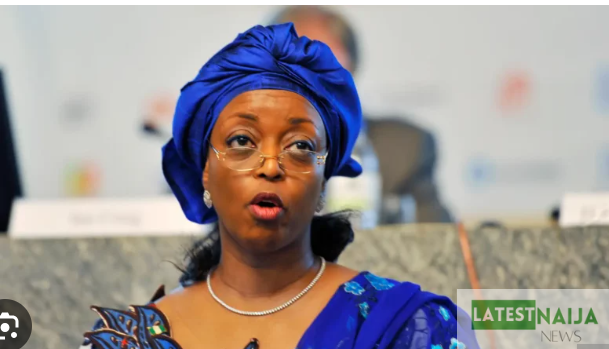In a significant development, the Economic and Financial Crimes Commission (EFCC) has obtained an arrest warrant for the former Minister of Petroleum Resources, Diezani Alison-Madueke, who is currently facing allegations of bribery and money laundering in London, United Kingdom.

EFCC’s Acting Spokesman, Dele Oyewale, confirmed this critical development to the press on Monday, underlining the agency’s commitment to bringing Alison-Madueke to justice.
Alison-Madueke, who has been at the center of various corruption allegations, was arraigned at the Westminster Magistrates Court in London on Monday.
Notably, the charges she faces in the UK are distinct from the 13-count money laundering charges previously filed against her by the EFCC in Nigeria.
The EFCC, in its official statement, emphasized that criminality knows no jurisdictional boundaries, and no crime should go unpunished. The money laundering charges against Alison-Madueke span multiple jurisdictions, including Dubai, the United Kingdom, the United States of America, and Nigeria.
“To ensure accountability and justice in Nigeria, we have successfully obtained an arrest warrant for the former minister and initiated extradition proceedings,” stated the EFCC spokesperson. “The commission is steadfast in its pursuit of justice, and Alison-Madueke will soon have her day in our courts.”
At the Westminster Magistrates Court, District Judge Michael Snow granted bail to Alison-Madueke, setting the bail amount at £70,000. Alongside bail, the judge imposed several conditions on the former minister:
An 11 p.m. to 6 a.m. curfew.
A requirement to wear an electronic tag at all times.
A £70,000 surety is to be paid before leaving the court building.
Although Alison-Madueke did not formally enter a plea during the court appearance, her attorney, Mark Bowen, informed the court that she intends to plead not guilty. The next stage of her legal proceedings is scheduled for October 30, when she will appear at Southwark Crown Court in London.
This high-profile case has garnered substantial attention both in Nigeria and internationally, as it underscores the ongoing efforts to combat corruption and ensure accountability in public office.
The EFCC’s pursuit of justice in this matter demonstrates the determination to hold individuals accountable for alleged financial wrongdoing, regardless of their geographical location.


Comments are closed.